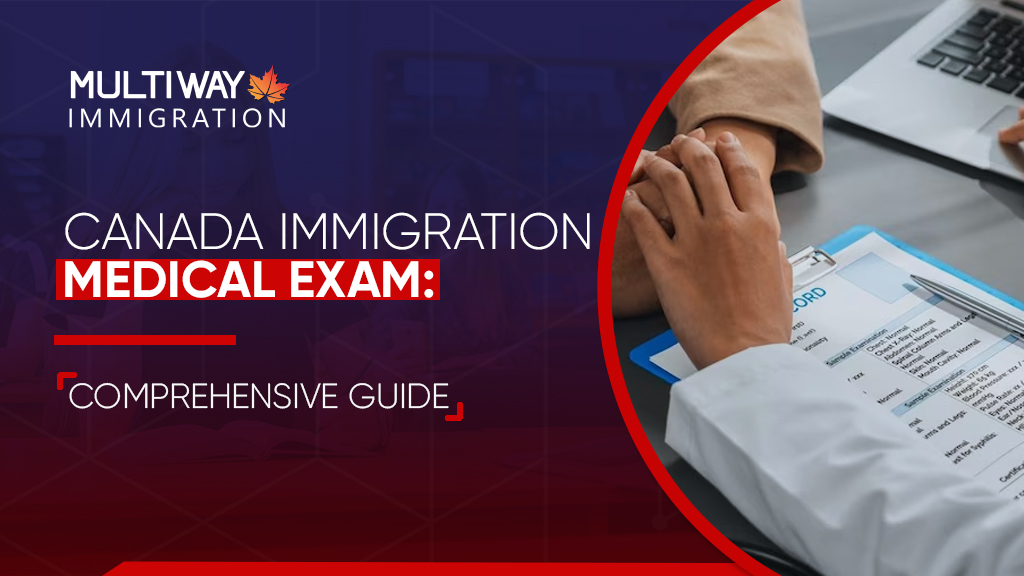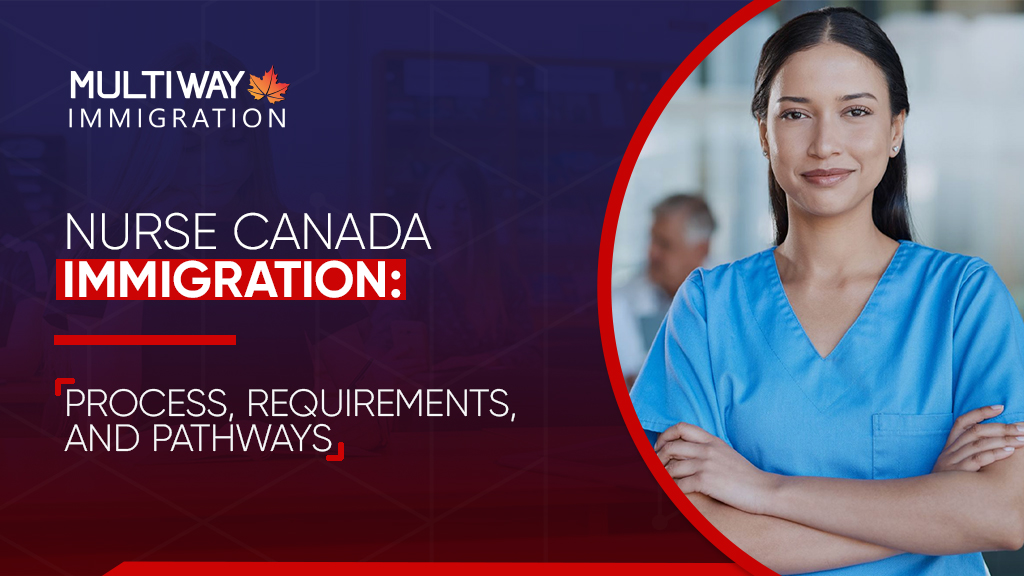If you’re considering Studying in Canada, it’s important to steer clear of certain mistakes in order to have a successful academic journey and an enriching experience.
This blog will highlight seven key mistakes that international students should avoid and offer practical advice to help you fully enjoy your time in Canada while receiving a top-notch education and keeping in check the study in Canada cost.
Study In Canada Cost
Choosing to study in Canada provides numerous advantages, such as receiving a top-notch education, accessing a wide range of academic programs, becoming part of a welcoming and inclusive society, and benefiting from outstanding post-graduation prospects. If you’re contemplating pursuing your studies in Canada, here are some essential aspects to consider:
Underestimating the Cost of Living
One of the most significant mistakes students make is underestimating the cost of living in Canada, particularly in major cities like Vancouver and Toronto. It’s essential to research and plan your finances accordingly, taking into account accommodation, transportation, groceries, healthcare, and recreational expenses.
Neglecting to Understand the Canadian Education System
A common error among students is miscalculating the expenses of Living in Canada, particularly in major cities like Vancouver and Toronto. It is crucial to conduct thorough research and plan your finances accordingly, considering various factors such as accommodation, transportation, groceries, healthcare, and recreational expenses.
Scholarships and financial aid opportunities
Many international students overlook the opportunities for scholarships and financial aid available in Canada. Researching and applying for these resources can alleviate the financial burden of tuition fees and living expenses. Explore scholarships offered by universities, government-funded programs, and private organizations. Start your search early and submit applications within the specified deadlines to increase your chances of securing financial support.
Underestimating the Importance of Health Insurance
It is crucial to have adequate health insurance while Living in Canada. Without insurance, you can face financial hardship due to high medical costs. Making your health and well-being a priority means keeping up with vaccines and getting help when you need it.
Not Taking Advantage of Campus Resources and Support
Canadian universities and colleges offer a plethora of resources and support services to nurture students’ personal and academic growth. Among these are academic advising, career services, counseling, libraries, and student clubs. Make sure to actively engage with these resources and seek guidance when needed. By participating in extracurricular activities and joining student organizations, you can also cultivate a robust network and form lasting connections.
Overlooking Cultural Adaptation Challenges
Experiencing a new culture can be both exhilarating and challenging. International students, in particular, may feel overwhelmed by cultural differences when adjusting to life in Canada. To make the most of the experience, it’s essential to recognize and appreciate the diverse perspectives you’ll encounter.
Failing to Plan for Post-Study Opportunities
A common error among students is undervaluing the cost of living in Canada, particularly in larger cities like Vancouver and Toronto. Conducting thorough research and properly planning finances is essential, taking into account factors like accommodation, transportation, groceries, healthcare, and recreation.
To manage your finances effectively, it’s essential to create a practical budget and find ways to save money. For instance, cooking meals at home and taking advantage of student discounts can both help you save. While it’s important to focus on your studies, planning for your future after graduation is equally critical. Canada offers post-study work permit options for international students, enabling them to gain valuable work experience. Wondering what would be the study in Canada cost? Lets find out.
Study In Canada Total Cost
For international students planning to Study in Canada, obtaining a study visa also referred to as a study permit, is of utmost importance. This permit grants you the privilege to stay in Canada throughout the duration of your studies. To familiarize yourself with the Canada study visa, here are the key points to keep in mind:
- You must first be accepted by a designated learning institution in Canada.
- Your study program must be at least six months long and you must have paid your tuition fees before applying for the permit.
- You will also need to prove that you have enough funds to cover living expenses during your stay in Canada, as well as return transportation costs when the visa expires.
- You must provide documents that prove you have no criminal record, are in good health, and do not pose a security risk to Canadians.
Looking out for immigration and study in Canada cost? lets dig in.
Canada Immigration Services & Cost of Study In Canada
Canada Study Permit
The Study Permit is a visa designed specifically for international students who wish to pursue their studies at designated learning institutions (DLIs) in Canada.
Eligibility Criteria:
- Acceptance Letter: A letter of acceptance from a Designated Learning Institution (DLI) in Canada is a requirement.
- Financial Proof: You must provide evidence of sufficient funds to cover tuition fees, living expenses, and return transportation.
- Good Health: You may be asked to undergo a medical examination to demonstrate your good health.
- Character Requirements: A clean criminal record is mandatory, and you may need to provide a police certificate.
Application Process:
- Applying for a study permit can be done either online through the Immigration, Refugees and Citizenship Canada (IRCC) website or by submitting a paper application to the nearest visa application center or embassy/consulate.
- The required documents for your application include the acceptance letter, proof of financial support, passport, photographs, and other supporting documents as per the guidelines set by IRCC.
- Depending on your country of residence, you may need to provide biometric information (fingerprints and photographs) at a designated biometric collection center.
- To process your study permit application, there is a non-refundable fee of CAD 150. Please note that additional fees may apply for biometric collection.
Processing Time:
- Processing times for study permits can vary depending on the visa office and the time of year. It is advisable to apply well in advance of your intended start date.
- You can check the estimated processing times on the IRCC website to get an idea of the expected timeline.
Study Permit Conditions:
- Duration of Stay: Your study permit will specify how long you are authorized to stay in Canada.
- Full-Time Enrollment: During your time in Canada, you must be enrolled as a full-time student at a designated learning institution (DLI).
- Program Changes: If you intend to switch your program or institution, you may need to apply for a new study permit.
- Work Opportunities: Depending on your study program and its duration, you may qualify for on-campus or off-campus work.
Renewals and Extensions:
-
If you intend to pursue further studies in Canada or wish to extend your stay, it is imperative to apply for a study permit extension prior to the expiration of your current permit.
- To ensure compliance with Canadian law and maintain your legal status, it is crucial to meet the requirements for study permit extensions and submit your application in a timely manner.
Understanding Study in Canada Options
If you plan to study in Canada, make sure you have all the required documentation and apply for the right visa. Don’t assume any student visa will do the job. It’s wise to conduct thorough research on the available options, which may include:
- Undergraduate Programs
- Graduate Programs
- Vocational and Technical Courses
- Language Programs
- Online and Distance Learning
Study In Canada How Much Does It Cost?
The estimated cost of a Study Visa for Canada can vary depending on several factors, including the type of program, duration of the study, and the applicant’s country of residence. Here are some common expenses associated with obtaining a study visa for Canada:
- Application Fee: The application fee for a study permit in Canada is currently CAD 150. This fee is non-refundable and must be paid when applying.
- Biometrics Fee: Besides the application fee, some applicants may need to provide biometric information (fingerprints and photographs). The biometrics fee is CAD 85 per person or CAD 170 per family.
- Tuition Fees: Tuition fees vary depending on the institution, program, and level of study. Tuition fees for international students in Canada are significantly higher than for domestic students. The average tuition fee for an undergraduate program is CAD$29,714 per year, and the average tuition fee for a graduate program is CAD$17,744 per year.
- Living Expenses: Considering the cost of living in Canada when planning your finances is important. This includes accommodation, food, transportation, health insurance, and other personal expenses. The average monthly cost of living for an international student is CAD$1,500, which includes rent, food, transportation, and other expenses.
- Health Insurance: International students in Canada are required to have health insurance coverage. Health insurance costs vary depending on the province and the coverage provided. Health insurance can cost around CAD 600 to CAD 1,000 per year.
- Travel Expenses: You will also need to consider the cost of travel to and from Canada, including airfare and transportation to your place of study.
- Books and supplies: The cost of books and supplies can vary depending on your program of study. You can expect to spend around CAD$1,000 per year on books and supplies.
- Health insurance: International students are required to have health insurance while they are studying in Canada. The cost of health insurance varies depending on the plan you choose. The average cost of health insurance for international students in Canada is CAD$600 to CAD$900 per year.
Cheapest Universities in Canada
UNBC is a public university located in Prince George, British Columbia. The average tuition fees for international students at UNBC is CAD$22,000 per year.
SFU is a public university located in Burnaby, British Columbia. The average tuition fees for international students at SFU is CAD$26,000 per year.
UM is a public university located in Winnipeg, Manitoba. The average tuition fees for international students at UM is CAD$23,000 per year.
USask is a public university located in Saskatoon, Saskatchewan. The average tuition fees for international students at USask is CAD$22,000 per year.
MUN is a public university in St. John’s, Newfoundland and Labrador. The average tuition fees for international students at MUN is CAD$21,000 per year.
These are just a few of the cheapest universities in Canada for international students. The actual cost of tuition may vary depending on the program you are studying and the university you choose.
Ways to Finance and Off-set Your Study in Canada Cost
The total for your study in Canada cost can be significant, but there are a number of ways to finance your education. Some of the options available to international students include:
Scholarships
There are many scholarships available to international students in Canada. These scholarships can be awarded based on academic merit, extracurricular activities, financial need, or a combination of factors. Some of the most well-known scholarships for international students in Canada include:
- The Canadian Bureau for International Education (CBIE) Scholarships: These scholarships are awarded to international students who are studying in Canada at the undergraduate or graduate level.
- The Schulich Leader Scholarships: These scholarships are awarded to international students who are studying in Canada at the undergraduate level in a STEM field.
- The Vanier Canada Graduate Scholarships: These scholarships are awarded to international students who are studying in Canada at the graduate level in a STEM field.
You can search online or contact your university’s financial aid office to find scholarships for international students in Canada.
Student loans
Student loans are another option for financing your study in Canada cost. However, it is important to be aware of the terms and conditions of student loans before you borrow money.
Student loans in Canada can be government-funded or private. Government-funded student loans are generally more affordable than private student loans.
To qualify for government-funded student loans, you must meet certain requirements, such as being a Canadian citizen or permanent resident, having a Canadian study permit, and being enrolled in a full-time program at a designated learning institution.
Private student loans are available from banks and other financial institutions. The terms and conditions of private student loans vary, so it is important to shop around and compare rates before you borrow money.
Work-study programs
Work-study programs allow you to work part-time while you are studying. This can help you cover your living expenses and other costs. Work-study programs are typically offered through your university or college.
To participate in a work-study program, you must meet certain requirements, such as being enrolled in a full-time program and having a Canadian study permit.
When choosing a work-study program, it is important to find a job that fits your schedule and interests. You should also make sure that the job pays enough to cover your expenses.
In addition to the above, there are other ways to finance your study in Canada cost as an international student in Canada. These include:
- Savings: If you have any savings, you can use this money to help pay for your education.
- Parental support: Some international students receive financial support from their parents.
- Work: You can work full-time during the summer months or part-time during the school year to earn money to help pay for your education.
- Tuition waivers: Some universities offer tuition waivers to international students who meet certain criteria.
The best way to finance your education will depend on your individual circumstances. It is important to do your research and explore all of your options before making a decision.
How Can Canada Immigration Consultant Help?
Canada Immigration Consultants play a crucial role in assisting individuals who wish to immigrate to Canada. They are professionals with in-depth knowledge of Canadian immigration laws, policies, and procedures. Here are some ways in which a Canada immigration consultant can help:
- Assessment and Eligibility: Immigration consultants can assess your eligibility for various Canadian immigration programs based on your qualifications, work experience, language proficiency, and other factors. They can provide a comprehensive evaluation of your chances of successfully immigrating to Canada.
- Program Selection: There are numerous immigration programs available in Canada, each with its own criteria and requirements. An immigration consultant can guide you in selecting the most suitable program that aligns with your qualifications, goals, and circumstances.
- Application Preparation and Documentation: The application process for Canadian immigration can be complex and time-consuming. An immigration consultant can assist you in preparing and organizing all the required documentation, including educational certificates, work experience letters, language test results, and more. They can ensure that your application is complete, accurate, and meets all the requirements set by the Canadian immigration authorities.
- Application Submission and Representation: Once your application is ready, an immigration consultant can submit it on your behalf.
- Updates and Follow-ups: Immigration consultants can keep you informed about the progress of your application and any updates or changes in immigration policies. They can provide guidance on additional steps or documentation required throughout the process.
- Appeals and Reviews: In cases where an application is rejected or requires further review, immigration consultants can provide guidance on the appeals or review process. They can assist in preparing additional submissions or represent you during the appeal proceedings.
While immigration consultants can provide valuable assistance, staying informed and involved in the process is essential.
Important FAQS
What is Canada Family Sponsorship, and who can be sponsored?
Canada Family Sponsorship allows Canadian citizens and permanent residents to sponsor their family members for permanent residency in Canada. Eligible family members may include spouses or common-law partners, dependent children, parents, and grandparents, depending on the specific family sponsorship program.
How can I apply for a Canada Visit Visa?
A Canada Visit Visa, also known as a Temporary Resident Visa (TRV), allows individuals to visit Canada for tourism, business meetings, or family visits. To apply for a visit visa, you need to submit a complete application, including supporting documents, to the Government of Canada. The application process may vary based on your country of residence.
Who is the best immigration consultant in Edmonton for assistance with Canadian immigration matters?
The best Immigration Consultant in Edmonton would be a reputable professional with extensive experience in Canadian immigration processes.
Now that we know the study in Canada how much does it cost, lets start reaching out the best immigration consultants in Edmonton and fly.









